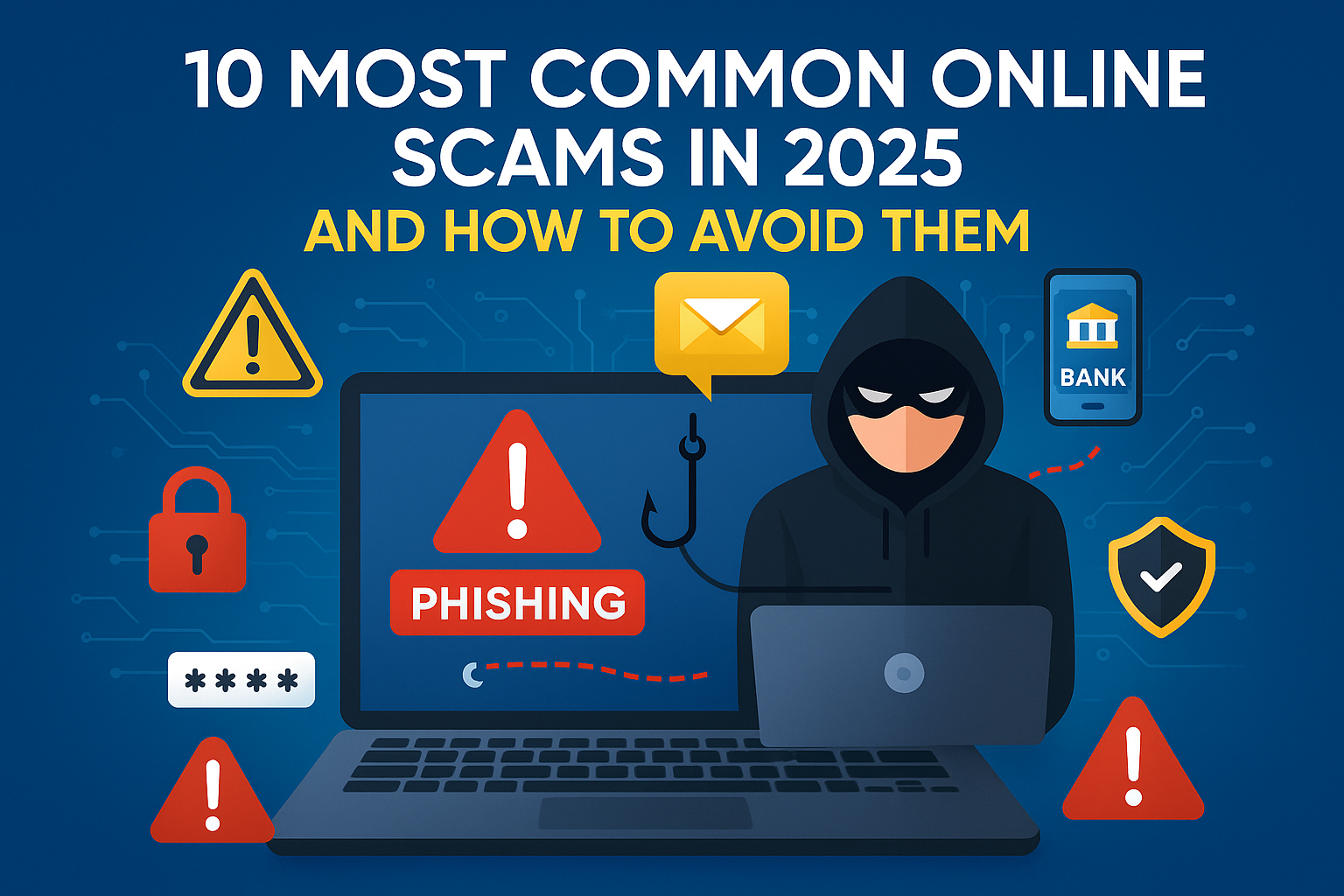The digital world in 2025 is faster, smarter—and riskier. With every advancement in technology, scammers are upgrading their tactics. From deepfake voice calls to QR code fraud, online scams are more deceptive than ever.
Let’s break down the top 10 online scams of 2025, how they work, and most importantly—how you can avoid them.
1. AI Voice Scams (Deepfake Calls)
How it works: Scammers use AI to mimic voices of family members or bosses asking for urgent money transfers.
How to avoid: Always verify with a direct call or video confirmation. Never act on emotional urgency without validation.
2. QR Code Payment Traps
How it works: Fraudsters trick users into scanning malicious QR codes that reverse-pay or capture UPI data.
How to avoid: Never scan QR codes from unknown sources or WhatsApp forwards. Use official payment links only.
3. Phishing Emails & Fake Websites
How it works: Links mimicking real websites trick you into entering login or OTP details.
How to avoid: Double-check URLs. Look for HTTPS and typos. Don’t click on unknown links in emails.
4. Job & Work-from-Home Scams
How it works: Fake recruiters offer remote jobs and then demand “registration” or “training” fees.
How to avoid: Research the company, check the email domain, and never pay upfront for jobs.
5. Loan & Credit Card Scams
How it works: Fake agents offer easy loans or free credit cards, stealing your documents and personal info.
How to avoid: Only use official bank or NBFC websites. Never upload PAN/Aadhar to unknown portals.
6. Fake Delivery Calls (Courier Scam)
How it works: You receive a call saying a parcel has suspicious contents. They ask for payment to “release” it.
How to avoid: Contact the courier directly. Don’t pay any random links or QR codes.
7. Investment & Crypto Traps
How it works: Scammers promise 2X-3X returns on WhatsApp/Instagram with fake screenshots and celebrity endorsements.
How to avoid: If it sounds too good to be true, it probably is. Stick to trusted platforms.
8. Romance & Dating App Scams
How it works: Fake profiles build emotional trust and ask for money citing emergencies.
How to avoid: Avoid sending money to anyone you haven’t met in real life. Watch out for emotional manipulation.
9. Social Media Account Hacking
How it works: A link or quiz steals your credentials. Scammers post phishing links from your profile.
How to avoid: Enable 2FA. Never log in through suspicious apps or extensions.
10. eCommerce Refund & Return Fraud
How it works: You receive calls pretending to be Amazon/Flipkart support asking for card details or OTPs.
How to avoid: Refunds never need OTPs. Don’t share sensitive info over the phone.
How to Stay Safe in 2025
- Enable 2-Factor Authentication on all accounts
- Use a password manager and don’t reuse passwords
- Check for verified accounts and official sites
- Update your apps and OS regularly
- Install trusted antivirus/firewall software
- Follow Cyber Dost (Govt of India) on X for alerts
Final Thoughts
Scammers don’t need your password—they just need your trust. Stay aware, stay skeptical, and always verify before you tap, scan, or pay. Share this article to protect your friends and family!
